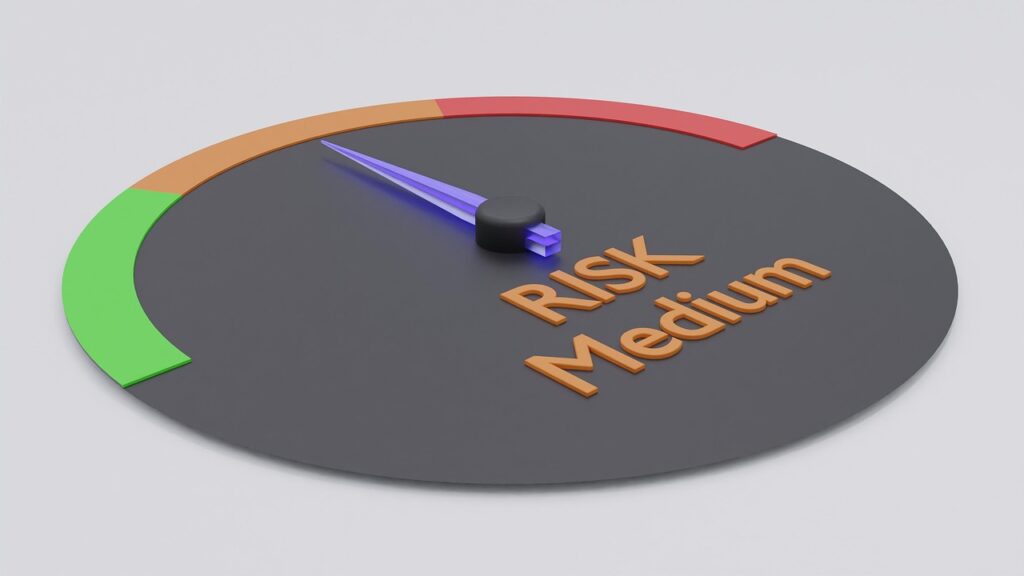Cybersecurity is crucial for every modern-day online business. According to the latest data, cybercrime is expected to cost the world $10.5 trillion annually by the end of 2025.
Cybercriminals most often go after organizations that deal with what hackers want the most—money and personal information, which is why online casinos are one of the most lucrative targets for cyberattacks.
However, there’s not much reason to worry because some of the most secure crypto casinos on the market invest heavily in their cybersecurity infrastructure and have multiple layers of security in place to prevent hacking attempts.
Physical Security Measures
Physical security refers to protecting people, property, and physical assets like data centers and server rooms from various events. Data centers and server rooms are the brains behind every online casino. They store sensitive data and also allow casinos to operate without interruption.
The easiest way to protect data centers is to ensure they are in reliable locations, which implies an area that is secure from natural disasters and a facility that prevents forced entry—data centers are significantly easier to breach when a hacker has access to the data center.
Since most online casinos don’t have the physical infrastructure, most rely on reputable third-party service providers that store their data and ensure its protection from external threats.
Network Security Measures
In addition to physical security measures, online casinos must also secure their networks, which is most often done through the use of firewalls and intrusion detection systems.
Firewalls determine which network traffic is permitted to pass through by filtering trusted traffic from the untrusted. In some cases, crypto casinos also use multiple firewalls between external and internal networks, allowing them to regulate outbound and inbound network traffic.
When it comes to intrusion detection systems, they are designed as a back-end to a firewall. The role of intrusion detection systems is to alert security teams of network attacks, which can be both internal, such as employee misuse, or external, such as hackers.
An IDS continuously monitors the traffic over the network and scans the traffic for false positives and known threats. Whenever a potential threat is detected, an intrusion detection system sends an alert to security operations center analysts and helps them stop the attack or mitigate the damage.
Application Security Measures
Another way online casinos protect their data and prevent unauthorized access is through authentication protocols and by encrypting the data that gets sent to and from the casino operator.
Authentication protocols allow one party to verify the identity of another party, such as the casino operator or a member of the casino’s IT personnel. To ensure only authorized parties have access to the system and sensitive information, casinos use multiple authentication protocols.
Some of the most common authentication protocols are username and password authentication, security questions, two-factor authentication, the use of PINs and codes, and more.
Additionally, crypto casinos use encryption to protect their data and make sure that user data, such as personal information and credit card details, are secure. To do that, casinos rely on SSL certificates, which work like digital passports that verify and protect the integrity of website communication with browsers.
One advantage of crypto casinos over traditional ones is that crypto casinos process cryptocurrency payments.
Crypto transactions occur on the blockchain, which is virtually impervious to cyberattack, especially if it’s a larger network like Bitcoin or Ethereum, and crypto casinos take advantage of blockchain technology to ensure the safety of all the transactions on their platform.
Personnel Security Measures
Just like traditional brick-and-mortar casinos, online casinos have a variety of different employees working for the company. The list includes executives, croupiers, internet technicians, customer support, advertising and marketing experts, and much more.
With so many employees in a variety of different positions, it is vital to educate staff members and help prevent them from accidentally revealing sensitive information or falling victim to various ransomware traps.
At the same time, online casinos use access control measures to ensure only the relevant personnel has access to necessary information. While authentication protocols decide who can access the system, access control limits the information a user can access based on their security clearance, thus minimizing the risk of a casino falling prey to a ransomware attack.
Furthermore, crypto casinos often run extensive background checks to verify previous employment history to ensure their employees are not convicted of any relevant crime—casinos are unlikely to hire anyone convicted of financial or violent crime.
More importantly, crypto casinos are not the only ones that need to have a gaming license, and casino employees, especially croupiers, need to have valid gambling licenses that allow them to work in that position.
Incident Response and Disaster Recovery
Simply put, incident response and disaster recovery are how an online casino handles the worst-case scenario.
Incident response refers to how quickly and efficiently an IT team responds to a cyberattack and its aftermath. A secure and trustworthy casino will often assign key stakeholders who will act as leadership if an incident occurs and communicate the plan for the incident response to other departments.
On the other hand, disaster recovery is the process of IT personnel recovering the data, and it refers to the time it takes for the business to be back up and running. Most reputable casinos often have disaster recovery plans in place to reduce any financial and reputation losses from cyberattacks and diminish the interruption of their daily operations.
Conclusion
A multi-layer cybersecurity strategy is essential for any business that operates with finances, processes transactions, and stores large amounts of sensitive and personal information.
Crypto casinos tick all of the boxes, which is why the most reputable crypto casinos rely on several security measures, all of which protect specific regions, strengthening the overall network and security of the casino.
In addition to all the layers of security crypto casino use on a regular basis, gambling establishments continuously look for new ways to stay ahead of the curve and prevent cyberattacks before they even happen by updating their cybersecurity infrastructure and relying on the latest technology to protect users and their data.



